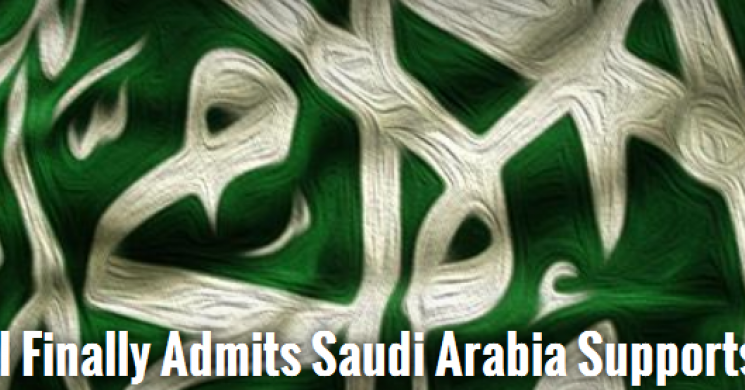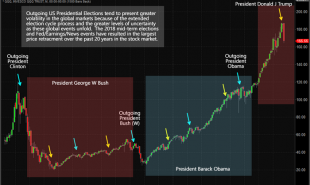
"At least some degree of Saudi Arabian involvement in the September 11 terror attacks has more or less been confirmed."

Darius Shahtahmasebi and AntiMedia. — Saudi Arabian support for terrorism is something most people are aware of, but in the face of Saudi Arabian and American denials of this reality, presenting it as an undisputed fact is frustratingly difficult without an official confirmation.
This is all beginning to change. At least some degree of Saudi Arabian involvement in the September 11 terror attacks has more or less been confirmed. Anyone who has even a limited understanding of the history of al-Qaeda and radical Islamism should be well aware that al-Qaeda was initially a Saudi-U.S. operation devised in the 1980s to repel Soviet influence in the Middle East; bin Laden, himself, was a Saudi national. Sure, fighters were trained in Pakistan and Afghanistan, but the money — and a bulk of its members — came from the Islamic Kingdom.
Even someone with only a superficial understanding of Saudi Arabia would undoubtedly question the U.S alliance with the Kingdom given that the regime adheres to a strict interpretation of sharia law, which they use to justify a complete erosion of basic rights, including an almost non-existence of women’s rights. Saudi Arabia is a place where political dissidence is quashed through execution and where many clerics advocate the same ideology ISIS is using to hold the people of Syria and Iraq hostage.

Saudi Arabia’s actions in Yemen have seen them engage militarily with the Houthi Ansurallah rebels (the sworn enemy of ISIS and al-Qaeda in the Arabian Peninsula (AQAP). They have committed a civilian massacre and caused a humanitarian catastrophe in the process. Yet as they wage their brutal bombing campaign, they have never once e targeted an ISIS stronghold, raising questions regarding the Kingdom’s commitment to combating extremism. This strategy, coupled with their support for shadowy rebel groups in Syria, including Jabhat al-Nusra and al-Sham, has made it increasingly difficult for the Saudi establishment to control the dialogue regarding who sponsors evil terrorism and who does not.
Don’t believe me? Take a look at the comments section on any Washington Post editorial that attempts to convince us otherwise.
Now, it seems a former U.S. ambassador named Zalmay Khalilzad has had the pleasure of bearing witness to a Saudi official not only admitting Saudi Arabia’s support for terrorism but also offering a full explanation as to how religion became such a useful political tool for the Saudi establishment:
“He [the Saudi official] explained that Saudi support for Islamic extremism started in the early 1960s as a counter to Nasserism—the socialist political ideology that came out of the thinking of Egypt’s Gamal Abdel Nasser—which threatened Saudi Arabia and led to war between the two countries along the Yemen border. This tactic allowed them to successfully contain Nasserism, and the Saudis concluded that Islamism could be a powerful tool with broader utility.”
Due to Islamism’s success in deterring threats to the Saudi political structure, it continued to be used throughout a number of geopolitical conflicts throughout the region:
“Under their new and unprecedented policy of honesty, the Saudi leadership also explained to me that their support for extremism was a way of resisting the Soviet Union, often in cooperation with the United States, in places like Afghanistan in the 1980s. In this application too, they argued, it proved successful. Later it was deployed against Iranian-supported Shiite movements in the geopolitical competition between the two countries.”
According to Khalilzad’s source, the Saudis did not admit to this not only because they were in denial, but also because they feared the West would abandon them as an ally. This notion is especially ludicrous given that at the time, the U.S. coordinated these terrorism-sponsoring efforts together with the Saudis – and continue to do so to this day.
Khalilzad believes this newfound confession is part of a bigger aim the Saudis are pursuing in attempting to travel down the road to modernity, even looking to eradicate extremism:
“Across the Islamic-majority countries there has been an ongoing struggle between modernization and Islamism. Riyadh views modernization as the vehicle through which the Saudi state, at long last, can confront and defeat extremism, foster a dynamic private sector and master the looming economic challenges.”
To those who are skeptical that Saudi Arabia could even want such a future, let alone be able to achieve it, there is one reason in particular why Saudi Arabia may, in fact, seriously consider the pathway to modernism as noted by Khalilzad (spoiler alert – it is not due to any aspirations for regional peace):
“There are, as I said, plenty of reasons to be skeptical of ultimate success. However, if the reform effort does work, Saudi Arabia is poised to become more powerful than before, enabling it to play a bigger role in regional dynamics including in balancing Iran and perhaps negotiating about ending the civil wars in the region. A true change in Saudi Arabia’s policy of supporting Islamist extremists would be a turning point in the effort to defeat them” [emphasis added]
I won’t hold my breath.
Read more by Soren K.Group







